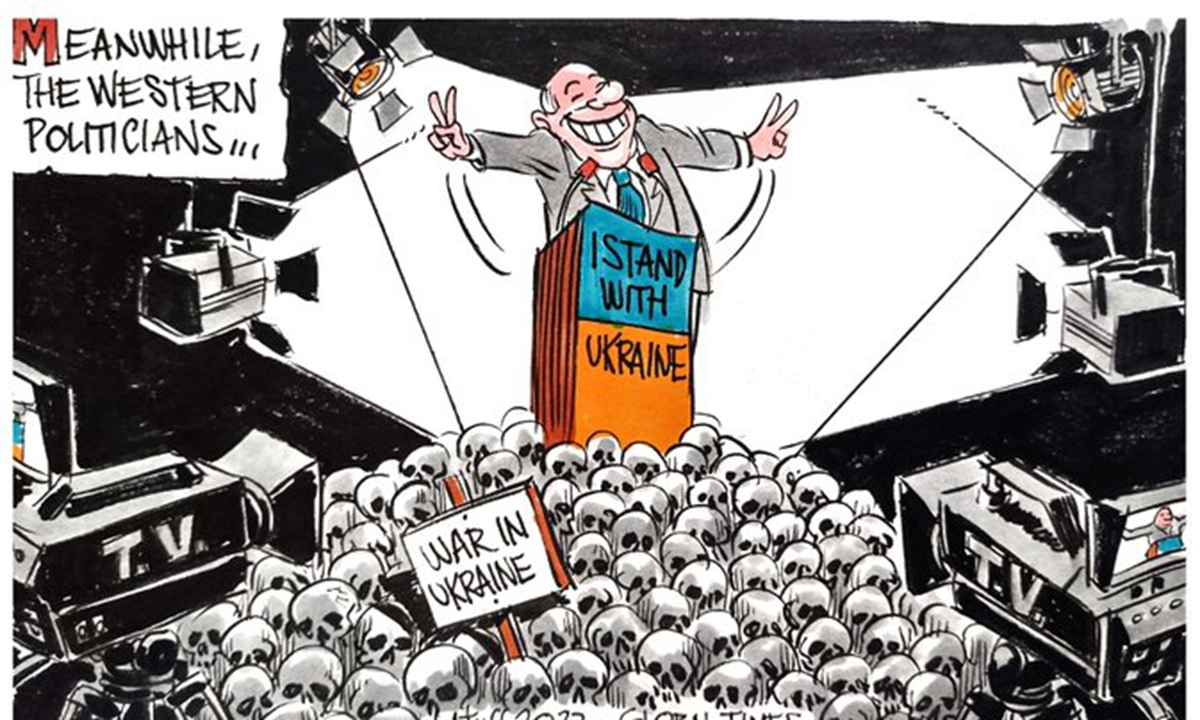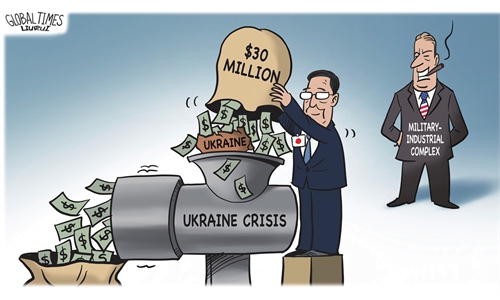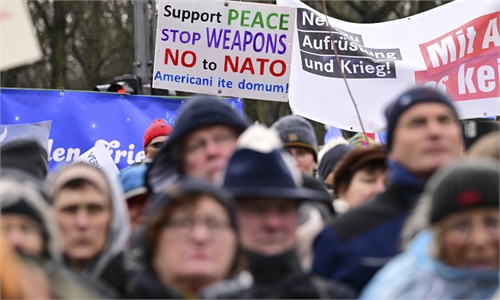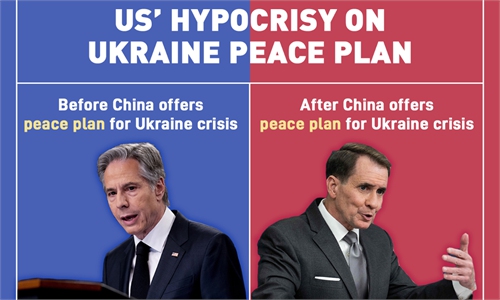The UK should be strongly condemned for this 'dirty' act: Global Times editorial

Illustration: Vitaly Podvitski/Russia
Minister of State for Defence confirmed on March 21 that some of the ammunition for the Challenger 2 battle tanks that the UK is sending to Ukraine includes armour-piercing rounds which contain depleted uranium. This has provoked a strong reaction from Russia. President Vladimir Putin warned on the same day that the weapons will be treated by Moscow as containing "nuclear components," and Russia will be forced to react. Russian Defence Minister Sergei Shoigu said the British decision left fewer and fewer steps before a potential "nuclear collision" between Russia and the West. This is a matter of great significance. It needs to be pointed out that it is definitely not just a problem that Russia needs to deal with, or simply means an increased risk of escalation in the Russia-Ukraine conflict.Depleted uranium, commonly known as "dirty bombs," is aptly named as the word "dirty" carries a profound connotation. When we hear this term, we immediately think of the US and NATO, as it is a permanent stain on their record. Although depleted uranium is not classified as a nuclear weapon, it isn't an ordinary conventional weapon either. It is because the uranium-238 it contains has chemical and radioactive substance. During the Gulf War and the Iraq War, the US military used a large amount of depleted uranium in Iraq. In 1999, NATO dropped 15 tons of depleted uranium against Yugoslavia during the bombing campaign.
The impact of these depleted uranium continues to cause harm even today, with numerous examples serving as concrete evidence of its enormous harm to human health and long-term destruction to the environment. After two wars, the rates of miscarriage, congenital defects, leukemia and cancer skyrocketed in Iraq, and the incidence of cancer in Serbia also rose significantly. Even many US and NATO soldiers who participated in the war have suffered from related illnesses. From a humanitarian perspective, the use of depleted uranium is a highly immoral act.
Such an immoral act, the UK is now going to do it and acts like it's a matter of course. It seems that when it comes to their own interests, international rules and morality are tools and weapons used to demand and attack others, rather than rules to constraint themselves. This trait is identical to that of the US, and even Japan, which used to readily "apologize and bow," has followed the example of the US and the UK, disregarding international opposition to its unilateral decision to dump nuclear-contaminated wastewater into the Pacific Ocean.
Some peace groups have been campaigning to ban depleted uranium. Last year, the United Nations General Assembly approved an Indonesian draft resolution expressing concerns about the "health risks and environmental impact" of depleted uranium and called for a "cautious approach" to their use. The vote was 147 in favor to 5 against, with the US, UK, France, Israel and Liberia opposing and 23 countries abstaining. Although an absolute minority, the US and UK, among others, have hindered a substantive ban and restrictions on the use of depleted uranium under international law, exposing flaws in the current international order.
To give a simple analogy, the current Russia-Ukraine conflict is a bit like two people who have been instigated by outsiders and become so angry that they'll accept any weapon that's handed to them without considering the consequences. At such a time, whether a third party fans the flames by adding fuel or tries to mediate and persuade them to seek peace will lead to completely different results. The fact that Britain provides "dirty bombs" at this time is an act very malicious in nature.
In fact, Ukraine, which experienced the Chernobyl nuclear power plant leakage accident, should be wary of depleted uranium. Ukraine is one of the world's most important grain and oilseed producing and exporting countries, planting including corn, wheat, barley and sunflower seed oil and so on. The potential hazards and pollution to environment caused by depleted uranium cannot be ignored. In addition, precautions should also be taken to prevent the "broken window effect" and "domino effect" caused by depleted uranium, which will lower the bottom line of the world.
We call on the UN to formally discuss this issue and express clear opposition and condemnation to the UK. In response to a question from a Chinese journalist, the Deputy Spokesperson for the UN Secretary-General stated that the UN Office for Disarmament Affairs has expressed concern about any use of depleted uranium anywhere. For countries like the UK or the US, expressing "concern" is clearly not enough. The international community needs to increase its moral condemnation of such behavior, which is not a matter of geopolitics but of basic humanity and morality.



